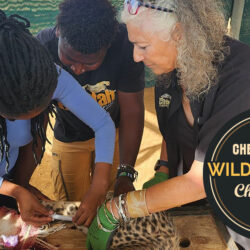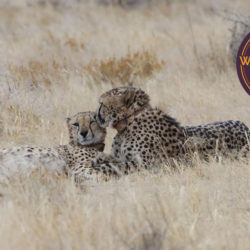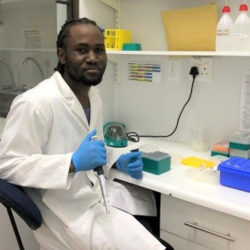Finn, CCF’s First Scat Detection Dog, Turns 16!
-
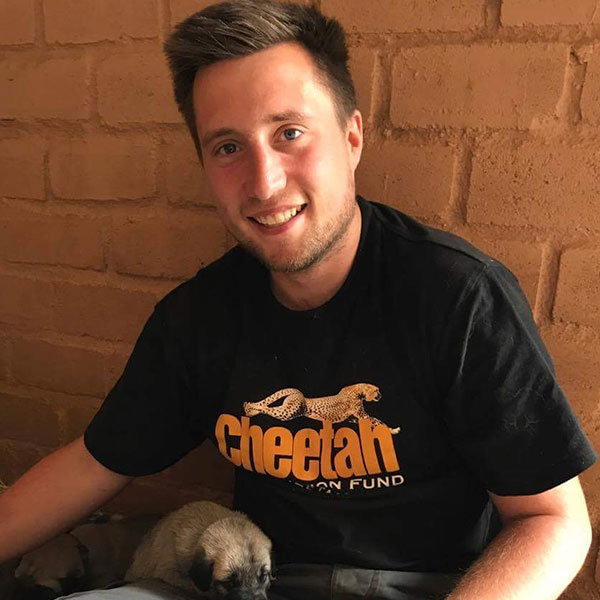
- by Calum O'Flaherty March 6, 2023

We are celebrating the 16th birthday of a remarkable dog named Finn. Finn is a retired scat detection dog that began his years of service to CCF back in 2009!
On March 7, 2007, a little border collie puppy named Finn was born in Chestertown, MD USA at the Mid-Atlantic Border Collie Rescue. Shortly after his birth, the Director of the organization, Sarah Ruckelshaus, was contacted with an interesting question. Did she have any dogs that would make a good candidate for detecting cheetah scat by scent in a remote African field research centre located in Namibia?
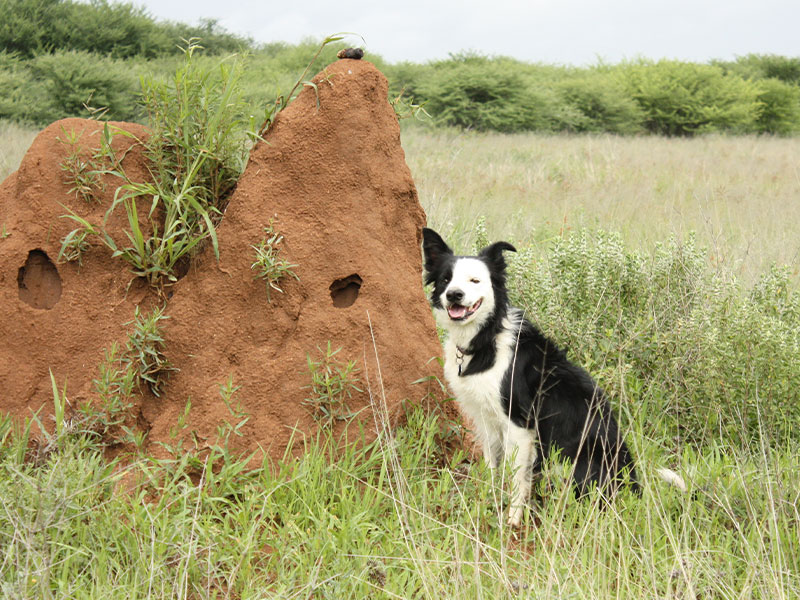
Scat detection is an important job!
Scientists can learn a lot about a species by studying their feces. By analyzing the DNA and hormones in cheetah scat, researchers can learn about the cheetah’s diet, health, and even reproductive status.
The person on the other end of the phone was Christine (Chris) Bartos, then the curator of Ungulates and Small Mammals at the Philadelphia Zoo. She had been looking for a dog that would be a good fit for Cheetah Conservation Fund’s research work studying the cheetah in the wild. At two meetings, at the Philadelphia Zoo, in 2004 and 2005, Chris and CCF’s founder, Dr. Laurie Marker, talked extensively about the innovative role that dogs were playing in conservation work. After conducting some research on training dogs for the purpose of scat detection, Chris was confident that she could help. She spent six months looking before her call to Mid-Atlantic Border Collie Rescue.
Chris needed a medium-sized dog that would venture out and explore but would come back immediately when called. The dog had to also LOVE toys since that would be the reward for working. From experience, Chris knew that typically dogs that love toys will work harder for them than those that work for food and they never “get full” of playing.
Sarah listened to Chris’ needs and was intrigued. There were no adult dogs that would be a good fit but she did have a litter of puppies. Choosing a puppy rather than an adult rescue dog was a bit risky as she could not be sure of how the puppy would grow up. Chris took the chance, driving from Philadelphia to the eastern shore of MD to meet the litter of five-week-old puppies.
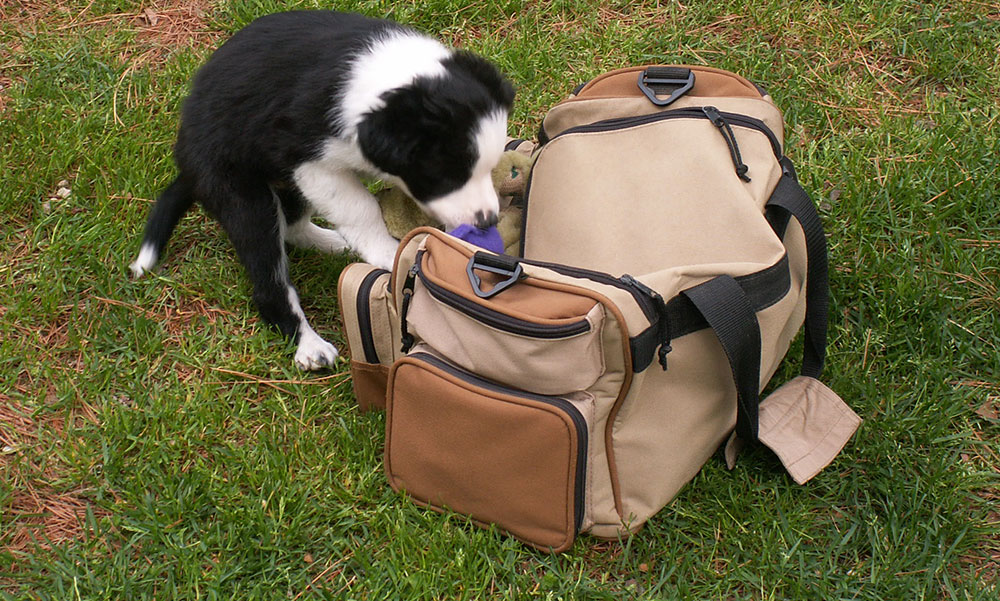
“I sat my training bag down on the ground and one little pup with a half black/half white face dove right in and started pulling toys out. I knew that he would be the one – and that’s how I chose Finn.”
Finn’s puppyhood was filled with trips to the zoo, where Chris did talks and demonstrations about the project. She took him everywhere to get him used to traveling, and he got used to meeting new people. He was always well-behaved and loved kids. At the Philadelphia Zoo, Chris collected scat samples from the cheetahs and used them to help train Finn. She started by simply setting a sample on the floor and, when Finn sniffed it, she tossed him his toy. The goal was for Finn to associate the smell of cheetah scat with something good, his toy, a tennis ball attached to a rope. Slowly, Chris increased the difficulty of the problem and would hide the scat so that Finn had to search for it.
In the summer of 2008, CCF sent Finn and Chris to Seattle to work with Conservation Canines, a group based out of the University of Washington that trained scat dogs for various projects. After returning from Seattle, Chris felt that Finn was ready for the next phase of the project, the trip to Africa.
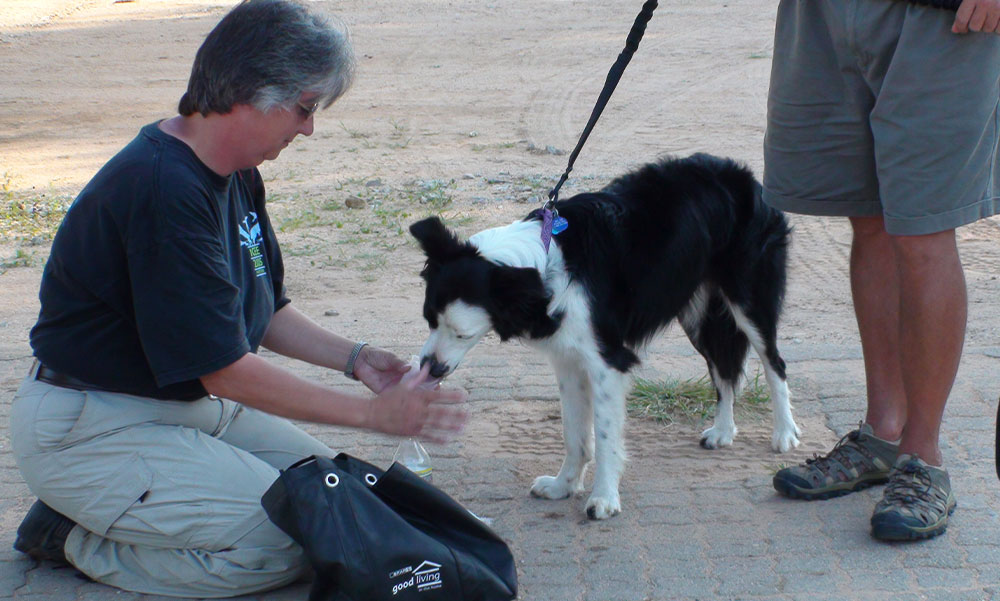
During their time in Africa, Chris and Finn worked hard to find cheetah scat samples. They searched around cheetah pens and in the areas where wild cheetahs were known to roam. Finn was a star at his job, and he impressed everyone with his focus and work ethic. Chris was thrilled to be able to do something so important in the fight to save cheetahs.
Finn’s cleft nose is an interesting detail that sets him apart from other dogs; it is a trait he has had since birth. His nasal bones are not fully formed, resulting in a split or gap in his nose. Despite his unique physical trait, Finn never had any difficulties in detecting cheetah scat, he was still able to excel becoming a valuable member of the scat dog team at CCF. He is the perfect example that physical differences don’t have to be a hindrance to an individual’s abilities or limit their accomplishments.
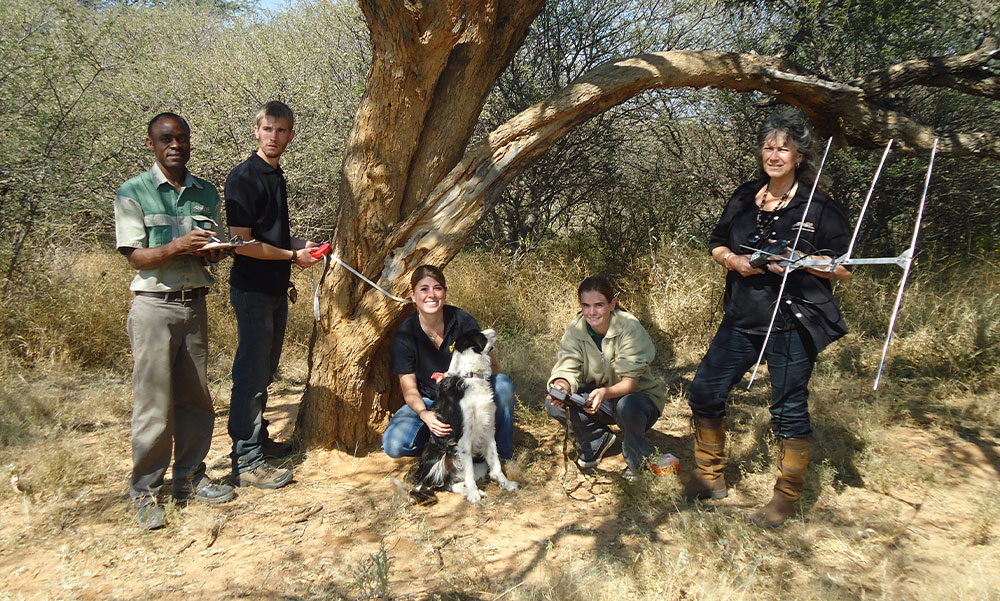
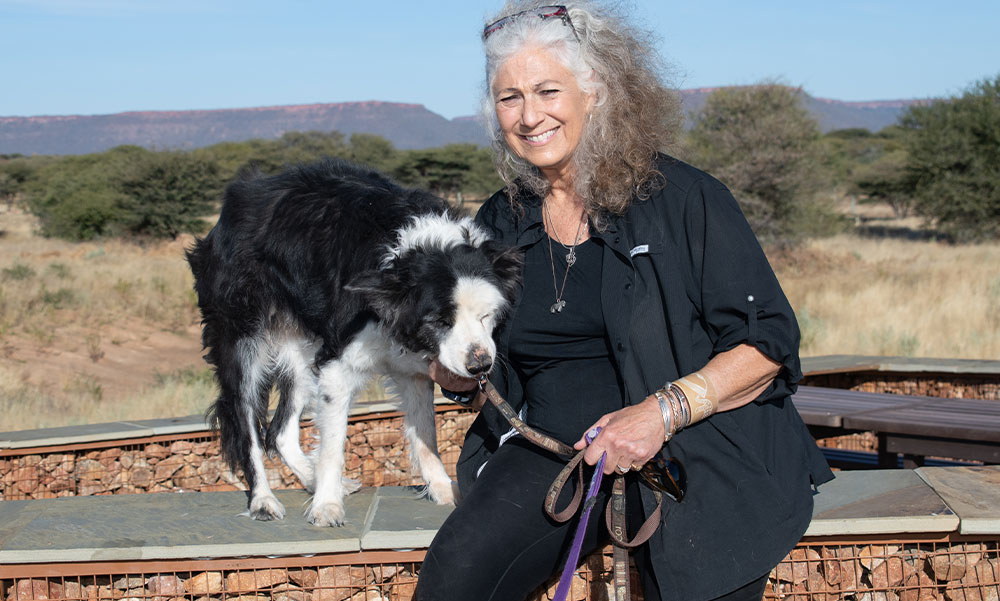
Today, Finn is retired from full-time fieldwork. He lives with Dr. Marker and still enjoys doing scat work, just on a more limited range around CCF’s campus and grounds. He has become Laurie’s shadow. Chris is now the Assistant Curator of Zoo New England and while she may never train another scat-detection dog, her experience with Finn has left a lasting impact. She was able to contribute to the conservation of cheetahs and show that dogs like Finn can make a huge difference in the world of wildlife research.
Finn’s work carries on with a new generation of scat-detection dogs at CCF like Enya.
Related Reading
-
July 1, 2023
Chewbaaka’s Wild Cheetah Challenge – 2023 -
July 1, 2022
Double Your Donation to the Cheetahs -
February 10, 2021
Kenyan Cheetahs in Namibia: Genetic Analysis

